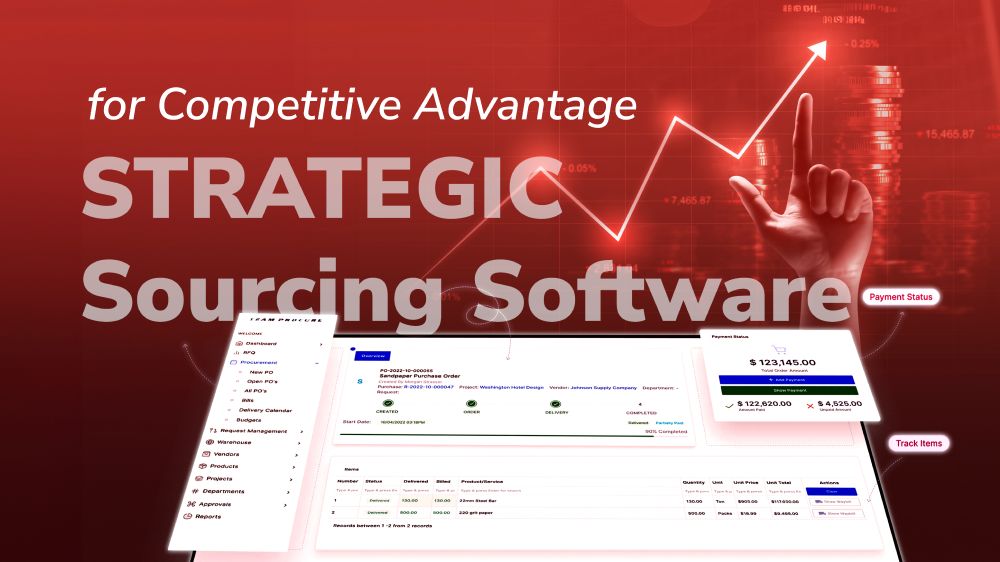Offshore Vs. Outsourcing Software Development: Can You Tell the Difference?

Content Map
More chaptersDo you know that 92% of G2000 enterprises outsource their IT activities? Surprisingly, there is almost no uncertainty about the positive impact of outsourcing software development, but business runners may find it a little bit confusing to distinguish between the terms “offshore” and “outsourcing.” At the very first glance, you may detect nearly no difference between these two concepts as both are often used interchangeably. Let’s see if there is any difference.
What Is Software Development Outsourcing?

In the simplest terms, outsourcing refers to the act of entrusting the entire business function, a project, or a number of IT-related obligations to a third-party service provider or contractor.
Sometimes referred to as IT business process outsourcing or custom software outsourcing, this is an umbrella term covering an extensive suite of services related to information technology. The outsourcing service range spans from traditional software development, such as web and mobile app development, to more specialized assistance like IT staff augmentation or quality assurance testing and other on-demand capabilities.
In addition to categories, outsourcing companies offer clients flexibility in pricing and availability of technology stacks, as well as the presence of process maturity and compliance with specific industry standards.
Software development outsourcing encompasses a variety of models that can be modified and aligned with the specific project requirements or the long-term business objectives of stakeholders. The outsourcing models are classified into various ranges of service delivery that include:
- Location-based: Onshore, nearshore, offshore, or hybrid outsourcing.
- Business-related: Functional, project-based, and staffing services.
- The third group is related to dedicated engagement or managed service models.
In fact, the paradigm of software development outsourcing is somewhat more nuanced and complex than it seems at first glance. Customers and contractors can proceed further with negotiation to come down to an optimal arrangement (perhaps not defined in any above).
What Is Offshore Outsourcing?
Offshoring, as commonly understood, refers to the relocation of an internal business process from one country to another. It is no buzzword across industries but has become more prominent, especially in the technical field. In fact, offshoring does not always necessarily mean outsourcing, as a company can set up its own subsidiary or branch in a different country. However, in the IT industry, it is broadly known as a specialized form of outsourcing. Tracing back to the 1980s, this term was coined for the very first time when IBM – a tech innovation company – sent its software jobs to India for development.
In the IT sector, offshoring or remote outsourcing occurs when transferring jobs or business operations to intermediary companies located in offshore locations teeming with top-tier outsourcing vendors. Oftentimes, the choices are developing countries with abundant human resources, and the labor costs there are much lower than elsewhere. For instance, a U.S.-based company outsources to Vietnam. The extent of offshore outsourcing can vary, ranging from complete to partial up to the client’s business specifications.
As aforementioned, offshoring is considered one model under the suite of software development outsourcing; thus, it brings forth lots of benefits. In this paradigm, IT organizations or startups can either offshore manufacturing or business activities to agencies on a contractual basis or establish a dedicated software development team exclusively for their own demands. Such an overseas setup called an ODC (Offshore Development Center) can operate autonomously or collaborate with the parent company’s counterparts – the in-house employees.
Tangible Benefits of Outsourcing Business Processes
Both outsourcing software development and its family member - offshoring - are purposed to deliver numerous positive outcomes. In regard to benefits, offshoring and outsourcing have a lot in common.
Reduce Costs & Save Money
For good reasons, 70% of companies outsource IT needs for the advantage of cost efficiency. It is true that outsourcing is the best way to cut costs without compromising on progress and outcomes. How does it possibly happen? As below:
First and foremost, firms can save on human capital expenditures. Through contracting out or offshoring projects, you can appoint an outsourced team or individuals to work on your on-demand basis. Thanks to labor flexibility, companies can proceed without worrying about the local talent “drought” or in-house skill gaps as they gain the privilege to add and remove additional hands when necessary. Thereby, they are set free from the obligation of hiring and paying full-time staff permanently. That is a huge expense, indeed, especially when software development is such an expensive undertaking. Consequently, the saved budget can go where needed the most, such as investing in brand-new projects or other business practices.
Even when you can afford local ‘high-end’ engineers, you would still agree that the majority of services delivered by offshore companies are priced considerably lower. And it certainly takes less time for outstaffing than internal hiring.
Additionally, business runners can harvest massive cost savings in terms of office supplies, technology infrastructure, maintenance costs, security, and heaps more. Last but not least, if offshoring is what you are opting for, you can enjoy employing top-tier tech talent at much more competitive rates as a result of the location-based salary range of developers. Hiring technical professionals in Vietnam, for example.
Unlock the Door to a Sizable & Scalable Labor Pool
Outsourcing and offshore work as a passport to the massive human resources overseas.
The further you stretch out to different parts of the world, the lower costs and higher quality candidates you can rally. In this regard, offshoring really seizes the spotlight. The offshoring takes advantage of the wealth of the local skilled workforce, which has not been fully utilized in the potential of technical capabilities yet. The cost of living in these regions is typically lower, meaning that salaries are also significantly less compared to developed countries.
Furthermore, offshore destinations, such as Vietnam, India, and China, have young, dynamic populations in which the majority of graduates are eager to fulfill the latest trends in technology and innovation. Vietnam, for example, currently possesses a massive array of developers at a young age (20 - 29 years old), accounting for the majority with 56% (According to the TopDev Report 2023).
Exploring new alternative lands for IT professionals, like Vietnam, is a strategic maneuver for businesses of all sizes to scale up their operations not only within their home country but also across many other countries.
Boost Higher Productivity & Quality
Either outsourcing or offshoring refers to not only the most financially viable solution for IT services and resources but also a significant booster of productivity and efficiency. By logically leveraging the time zone differences, companies can benefit from 24/7 operations and support. The time disparity among different countries facilitates round-the-clock innovation and problem-solving.
Imagine that a remote development team works in a different time zone from yours. So, while your team is asleep, the outsourced company can continue to work on development or maintenance tasks, making it possible for your project progress to move forward even while you are away. Not only does this lead to faster delivery times but also better productivity and higher quality outputs, as the offshore team has more time dedicated solely to your project.
Prioritize Core Business Functions
Compared to when conducting a project from alpha to omega, business owners and their team members often have to wear multiple hats or work under pressure over a long period of time. Under unideal conditions, they have to deal with a heap of obstacles, like handling tasks not within their expertise or focusing on unimportant functions rather than core competencies. This takes away time and resources from critical aspects of the business. In the long run, this status can take a toll on business productivity and growth as well as employee morale, potentially resulting in burnout or subpart deliverables.
When companies choose to outsource work offshore, they rely on a team with more specialized skills working around the clock to complete tasks and deliver results. Rather than striving for non-core services or auxiliary functions, they are able to allocate resources to other essential development workstreams like innovation or business acumen, such as sales and marketing. This can lead to untapped opportunities and increased profitability in the long run.
Mitigate Risks of Project Failure
There may be lots of reasons behind a failed project or product, but IT outsourcing can buy you a ticket toward a safe investment. When it comes to working with an outsourced team or developers, you can make certain they have the necessary expertise, knowledge, and skills required for your project. As such, these extra hands are capable of handling tasks and delivering results that your internal team may not compete with or simply have no effort to jump in.
Moreover, outsourcing partners will take over parts or the entire course of the project along with the risks (based on the service level agreement - SLA). So, they can aid you in mitigating different potential issues, such as staff turnover, recruitment delays, etc., or technical problems related to the project. A good collaboration and a reliable partner will set the foundation for a successful project and satisfying results.
Parameters That Set Outsourcing and Offshoring Apart

With offshore being an inevitable part of the outsourcing model overall, there is not much confusion around these similar concepts, all the more so for those who are not tech-savvy or first-timers. In fact, both approaches bear similarities and differences from one another.
Location
The term ‘offshoring’ implies that work is being relocated to a geographically different location, often overseas, from where it usually takes place. In contrast, outsourcing can occur within the same country, even in the same area, or in an entirely different region. This allows companies to choose a location with the best combination of cost, quality, and cultural compatibility for their specific needs.
Control
The degree of control is a difference between offshoring and other forms of outsourcing.
In most cases, outsourcing is about ordering and paying for results rather than micromanagement and supervision. You authorize and incentivize a vendor to handle a task for you, and they take care of the rest without too much interaction and communication. When outsourcing, the client companies must be ready to give up complete control over the outsourced staff as well as the development processes, especially if it is full project outsourcing. Oftentimes, the service vendors will be in charge of the whole thing under your oversight and make sure that the project aligns with your vision and goals.
In contrast, offshore outsourcing, particularly offshore development teams or centers, enables client companies to retain more control over their project progress and resources, albeit remotely. This is because the offshore team often works as an extension of the client’s internal counterpart and follows their established processes and workflows. For that, clients can manage the offshore staff and what is happening within their projects more closely.
Cost
Speaking of cost savings, outsourcing and its remote form of services - offshoring - promise the same thing yet at different levels based on where and how the work is done. In most circumstances, outsourcing altogether aims to reduce the overall expenditure of conducting a project by relocating some functions or tasks outside the company. Meanwhile, offshoring takes it a step further and leverages lower service prices and labor costs in overseas countries with skilled IT professionals available at competitive rates.
Thus, when evaluated on a scale, offshoring, nearshoring, and onshoring offer businesses opportunities to reduce costs, with savings decreasing respectively from high to low. Among these three, offshoring is the most cost-efficient with a caveat: It entails higher risks compared to onshore, nearshore, or in-house resources. The latter two options require a bigger workforce and more expenses for office space, hardware and software equipment, upkeep, and maintenance costs.
Others
The biggest difference between offshoring and the other two outsourcing siblings - onshore and nearshore - lies in their geographic locations, which will lead to multiple other distinctions, such as cultural differences, time zones, etc. Perhaps you need to dive deeper into a comparison of onshore vs. nearshore vs. offshore to figure it out. In addition, offshore outsourcing also differs from other models by nature and objectives.
Offshoring Vs. Outsourcing: Which to Choose?
In conclusion, do not get stressed about trying to separate these terms too rigidly because if you offshore work, you are using a form of outsourcing. The only point here is whether you choose to go offshore, nearshore, or onshore for your project or else.
Do not hasten to make a decision yet; take time to consider your endeavor’s ins and outs and see if outsourcing or offshoring fits the bill. You need a strategy, to be exact. Mark that the decision must not be based on how much money will be saved but also on the quality of results that can potentially be achieved with one particular model over another.
In the end, it is all about choosing what works best for your company at any given time and situation. The most appropriate outsourcing model is of utmost importance, and so is the trustworthy partner. Take the necessary time and effort to determine the best-fit outsourcing model and partner you can rely on. Orient Software is no better option for you to consider. Why partner with Orient? Drop us a message for further info.







